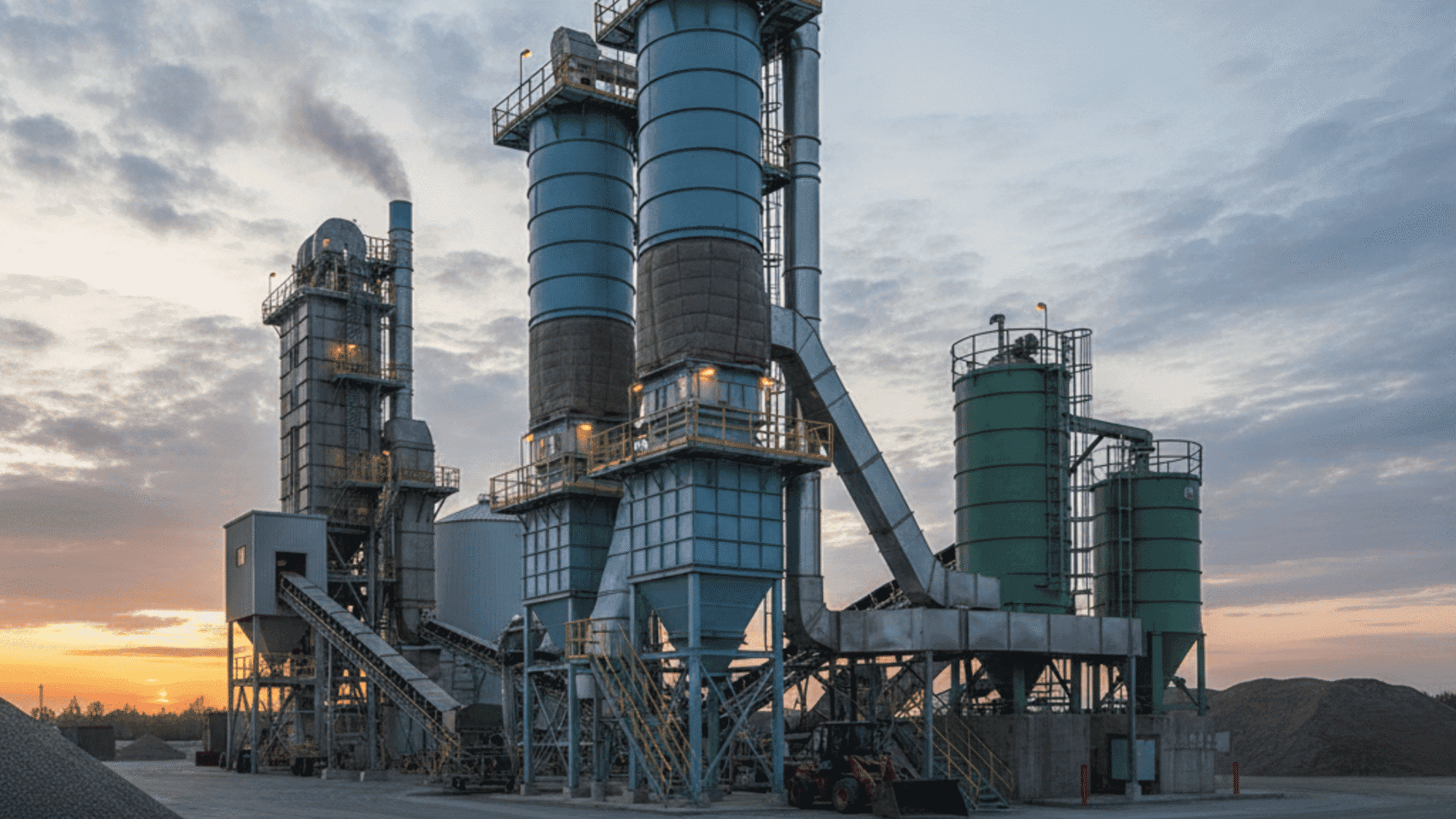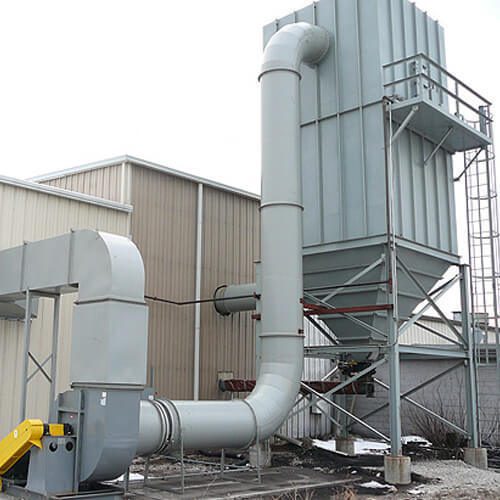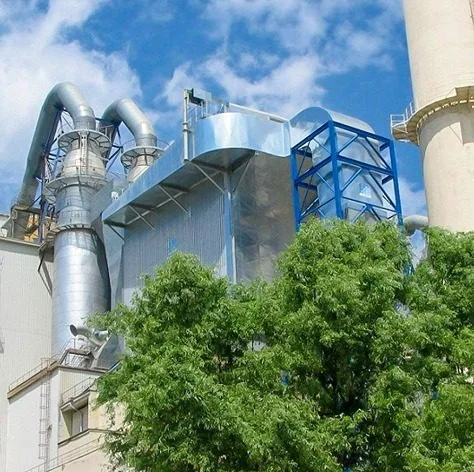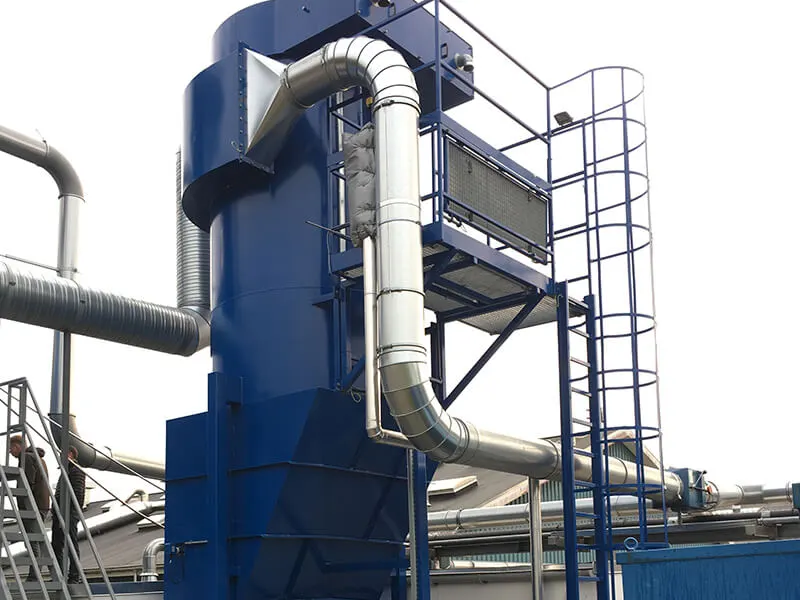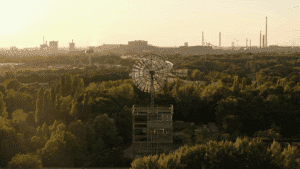Asphalt production is one of the most critical processes in modern infrastructure development. Roads, highways, and urban mobility depend on the quality and consistency of asphalt. But behind the scenes, asphalt mixing plants face increasing challenges: stringent emission limits, high energy costs, aging equipment, and the constant demand for efficiency and reliability.
At Intensiv-Filter Himenviro, we understand these pressures. For decades, we have provided advanced de-dusting solutions and modern filtration systems that keep asphalt plants compliant, cost-efficient, and future-ready. This is the story of how we transform asphalt plants—whether through complete new installations or by upgrading existing equipment—into high-performance facilities built to last.
The Challenge: Emissions and Outdated Systems
An asphalt mixing plant is not a simple machine. It is a complex system consisting of mineral storage, filler silos, and recycled asphalt storage, combined with dosing units, drying drums, dust extraction systems, screening stations, and loading silos. Each stage generates dust emissions that, if uncontrolled, not only harm the environment but also result in penalties and potential plant shutdowns.
During production, raw materials are dried and heated to temperatures between 160 and 190°C. At these levels, enormous dust loads are generated, particularly in the drying drum and associated sections. Older filter systems often struggle to handle this burden. They consume excessive energy, face high wear and tear, and fail to consistently meet today’s legal emission limits. For plant operators, this means rising operating costs, unplanned downtime, and the risk of non-compliance with regulations.
The industry standard is clear: residual dust levels must stay well below 10 mg/m³. Yet many conventional systems cannot reliably reach this benchmark. Operators face a difficult choice—either invest heavily in new plants or find smarter ways to modernize existing equipment.
The Intensiv-Filter Himenviro Solution
Our approach is built around flexibility, innovation, and proven reliability. We offer both complete new installations and intelligent retrofit solutions. This ensures that operators can choose the path that best balances performance, investment, and long-term value.
In one case, we delivered a new plant installation with an operating air volume of 110,000 m³/h at a filter temperature of 170°C. This system was designed from the ground up for continuous, efficient, and low-emission operations.
In another case, we transformed an older plant in the Netherlands through a retrofit. By installing our patented Coanda cleaning system on the existing middle section, the operator received a fully renewed filter unit—without replacing the entire plant. The result was a guaranteed residual dust level of 5 mg/m³, significantly below legal limits, achieved at a fraction of the cost of a new system.
This combination of modular design, adaptable components, and patented technology allows us to deliver tailor-made solutions that reduce costs while ensuring long-term compliance.
Technical Excellence That Delivers Results
Every Intensiv-Filter Himenviro installation is engineered for efficiency and reliability. In continuous operation, our filters consistently maintain resistance values under 8 hPa, ensuring smooth airflow with minimal energy demand.
The cleaning system automatically adapts to actual requirements, avoiding unnecessary compressed air consumption. This results in significant energy savings while protecting filter bags from premature wear. Emission levels achieved by our systems remain far below the limits set by regulators, with residual dust values consistently under 5 mg/m³.
The modular construction of our filters also makes maintenance straightforward. Components can be assembled on site, reducing installation time and disruption. For plant operators, this means less downtime and greater reliability.
Benefits Beyond Compliance
While compliance with environmental laws is non-negotiable, the advantages of our systems extend far beyond emissions control. By lowering energy consumption, extending filter life, and reducing maintenance costs, our solutions deliver measurable savings year after year.
For example, in retrofit projects, operators often recover their investment within a short period due to lower operating costs and the avoidance of regulatory fines. At the same time, productivity improves because modern filtration minimizes interruptions and maximizes plant availability.
In addition, the recovered dust product is not wasted. Instead, it is reintroduced into the asphalt production process, creating both economic and environmental value. This closed-loop approach supports sustainability while ensuring material efficiency.
Designed for Today, Ready for Tomorrow
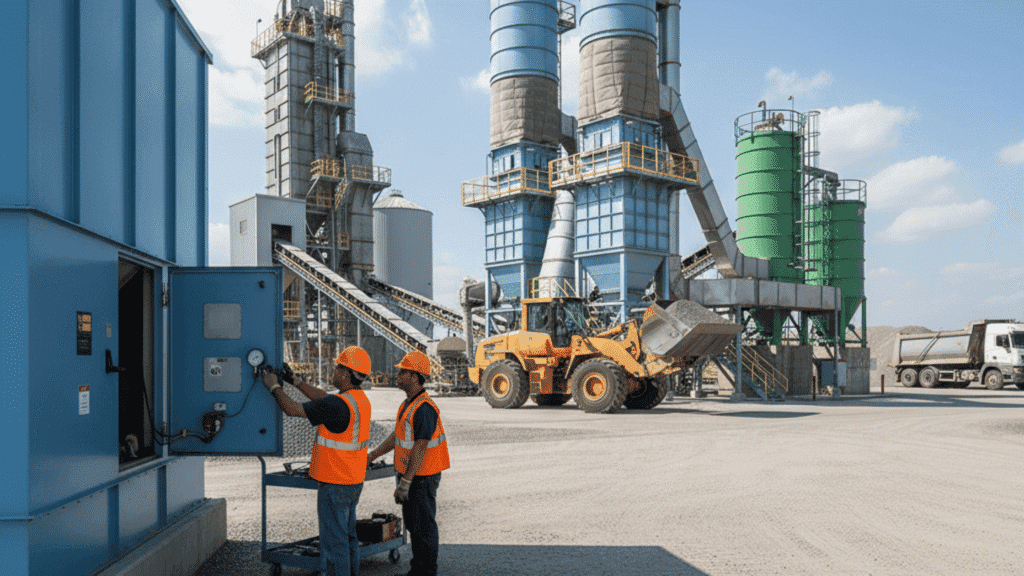
The asphalt industry is evolving rapidly. Urban development, new road projects, and stricter emission norms will continue to place pressure on plant operators. Choosing the right filtration partner is not just about solving today’s problems—it is about preparing for the demands of tomorrow.
At Intensiv-Filter Himenviro, we design and build systems that anticipate future needs. Our new installations provide state-of-the-art technology tailored to customer requirements and plant layouts. Our retrofit solutions breathe new life into aging equipment, turning outdated filters into high-performance systems.
Whether through complete turnkey projects or modular upgrades, we ensure every solution is engineered to secure your production, reduce your costs, and guarantee your compliance.
A Trusted Partner for the Asphalt Industry
Our track record speaks for itself. From large-scale new builds to targeted retrofits, our systems have been successfully installed and operated at asphalt plants across Europe and beyond. Plant operators value not just the technical quality of our solutions, but also the partnership we bring: expert consultation, precise engineering, and reliable after-sales support.
When you work with Intensiv-Filter Himenviro, you gain more than a filtration system. You gain a trusted partner committed to your success, your compliance, and your future.
Conclusion: Clean Air, Reliable Production, Sustainable Growth
The demands on asphalt plants are only getting tougher. Rising dust emissions, higher energy costs, and stricter regulations leave no room for compromise. But with Intensiv-Filter Himenviro, operators don’t need to choose between compliance and profitability. Our advanced filtration and de-dusting systems deliver both.
Whether you need a complete new installation or a retrofit for your existing plant, we provide solutions that combine proven technology, modular flexibility, and decades of experience.
Clean air, reliable production, and sustainable cost savings—this is what we deliver to the asphalt industry. And this is how we secure the future of your plant.
اكتشف مجموعة الحلول لدينا:
الأسئلة الشائعة
Asphalt plant filtration systems, also known as dust collectors or baghouses, are essential components of an asphalt mixing plant. Their primary purpose is to control air pollution by capturing and filtering out particulate matter, gases, and other emissions generated during the production process. This includes dust from aggregate drying, handling, and other parts of the plant.
Filtration systems are crucial for several reasons:
- حماية البيئة: They significantly reduce the release of harmful pollutants into the atmosphere, helping plants comply with strict environmental regulations.
- سلامة العامل: By cleaning the air, they create a safer working environment for plant employees.
- Material Recycling: The dust and fine particles collected by the filters can often be recycled back into the asphalt mixture, which reduces waste and lowers material costs.
- Operational Efficiency: A well-maintained filtration system ensures the plant operates efficiently, as clogged filters can negatively affect production.
The most common type of filtration system is the baghouse filter, also known as a fabric filter. Within this category, there are different cleaning mechanisms:
- Pulse-jet baghouses: These use a pulse of compressed air to periodically clean the filter bags, knocking accumulated dust off the surface.
- Reverse-air baghouses: These use a reverse flow of air to collapse the bags, causing the dust cake to break off.
- Mechanical shaker baghouses: These use a mechanical shaker to agitate the bags and dislodge dust.
Another type of system is a wet scrubber, which uses a scrubbing liquid (usually water) to remove pollutants from the gas stream. Wet scrubbers are effective at removing both particulate matter and gaseous pollutants.
